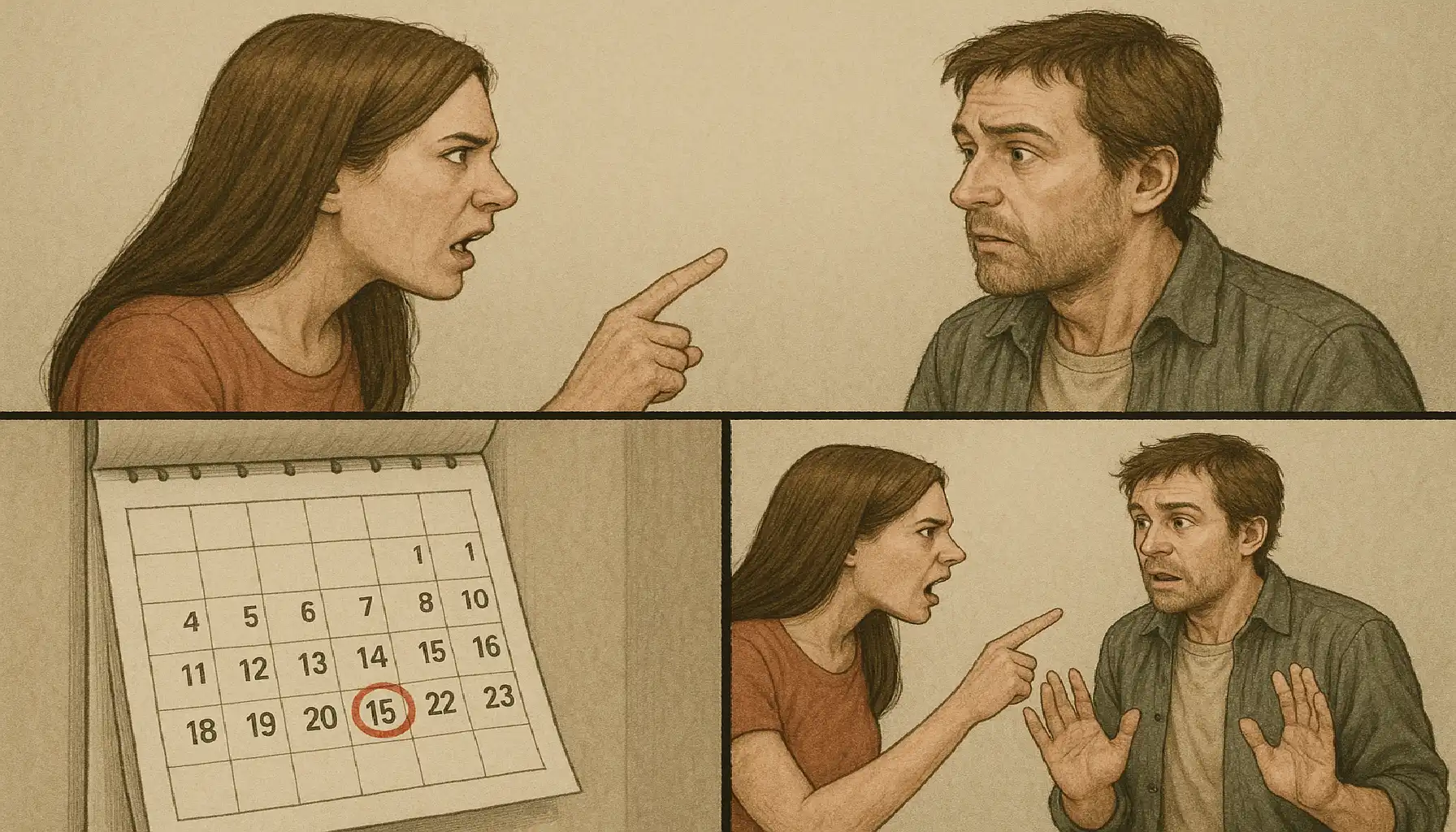The Hidden ADHD Symptoms Every Man Should Know

Contents:
ADHD is often stereotyped as a childhood disorder marked by hyperactivity and trouble sitting still. Yet, for countless men, it persists quietly into adulthood, shaping lives in ways that are often misunderstood or overlooked. Recognizing the hidden symptoms of ADHD in men can be life-changing, not only for those affected but also for their loved ones.
ADHD (Attention-Deficit/Hyperactivity Disorder) is a neurodevelopmental condition that affects how the brain regulates attention, impulse control, and activity levels. While typically diagnosed in childhood, it frequently persists into adulthood. ADHD in older men symptoms often involve difficulty sustaining focus at work, restlessness during meetings or sedentary tasks, impulsive decision-making in relationships or finances, and challenges with organization and time management.

The condition is linked to differences in brain structure and function, particularly in areas controlling executive functioning such as the prefrontal cortex, and involves dysregulation of dopamine and norepinephrine neurotransmitters.
Treatment for ADHD Symptoms in Adults Men:
Medications: Stimulants (e.g., methylphenidate, amphetamines) or non-stimulants (e.g., atomoxetine) to help regulate neurotransmitter function and improve focus;
Therapy: Cognitive behavioral therapy (CBT) to develop coping strategies for workplace challenges, relationship management, and emotional regulation; behavioral therapy focused on organizational skills and habit formation;
Lifestyle adjustments: Creating structured daily routines, implementing organizational systems for work and home, maintaining good sleep hygiene, regular physical exercise, and using focus-enhancing cognitive training or apps to strengthen attention skills.
18 Overlooked ADHD Symptoms in Adult Men
Many adults experience inattentive ADHD symptoms in men that are easily mistaken for personality quirks or everyday stress. Here are 18 commonly overlooked ADHD symptoms in men adults:
Chronic disorganization (at home, work, or with personal items).
Frequent lateness or poor time management.
Restlessness or feeling unable to relax.
Master-level procrastination, often missing deadlines.
Difficulty sustaining attention in conversations or tasks.
Forgetting small but important tasks (e.g., paying bills, appointments).
Impulsive decision-making (from spending to relationships).
Trouble listening or following through on instructions.
Difficulty finishing projects—many starts, few completions.
Emotional volatility, such as irritability or frustration over minor issues.
Struggles with criticism, even when constructive.
Daydreaming or zoning out during meetings or conversations.
Poor organizational skills, leading to clutter and misplaced items.
Difficulty maintaining relationships due to inattentiveness.
Risk-taking behaviors (speeding, gambling, etc.).
Trouble handling routine or repetitive tasks.
Social challenges, such as talking over others or going off-topic.
Neglect of personal hygiene or self-care (in some cases).

Symptoms of ADHD in Young Men
ADHD in adults symptoms men include more pronounced hyperactivity and impulsivity. Common ADHD symptoms in young men include:
Inattention: Easily distracted, struggles to focus, misses details.
Impulsivity: Interrupts others, acts without thinking, trouble waiting turns.
Hyperactivity: Fidgeting, restlessness, difficulty staying seated.
Poor organization: Frequently loses items, disorganized schoolwork.
Starting new activities without finishing old ones.
These behaviors can be mistaken for typical youthful energy, making early diagnosis challenging.
Symptoms of ADHD in Older Men
As people age, ADHD symptoms in older men often shift:
Hyperactivity tends to decrease, but restlessness and impatience may persist.
Inattentiveness and executive function issues (planning, organizing, prioritizing) become more prominent.
Chronic forgetfulness and trouble managing daily routines.
Emotional dysregulation, such as sudden anger or frustration.
Difficulty adapting to life changes or increased responsibilities.

ADHD Symptoms in Men Relationships
ADHD symptoms in men in relationships can impact or harm how connections are made:
Trouble paying attention during conversations, leading partners to feel ignored.
Forgetting important dates or details, which can cause frustration.
Poor organizational skills, contributing to household chaos.
Impulsivity, resulting in arguments or rash decisions.
Emotional outbursts or withdrawal during conflicts.
Partners may misinterpret these ADHD symptoms in young adult men as lack of care or commitment. Yet, an open talk and sincerity foster empathy and healthier communication in such cases.
ADHD Symptoms in Men vs Women: Comparative Table
ADHD symptoms in women vs men are a bit different due to the difference in background, parental attitude, and many other societal factors. Here is a quick comparison:
Symptom/Feature | Men | |
Diagnosis rates | Higher | Lower, often underdiagnosed |
Symptom visibility | More external (hyperactivity, impulsivity) | More internal (inattention, daydreaming) |
Hyperactivity | Physical restlessness | Verbal chattiness, emotional outbursts |
Organizational issues | Prominent | Prominent, but less disruptive |
Emotional symptoms | Irritability, frustration | Anxiety, depression, self-esteem issues |
Diagnosis timing | Often in childhood | Often delayed to adulthood |
Relationship impact | Forgetfulness, inattentiveness | Emotional sensitivity, feeling misunderstood |
Symptoms of ADHD in Adult Men: Checklist
Use this checklist to identify common ADHD symptoms in men — be it yourself or someone you know:
Frequently loses or misplaces items
Struggles to focus on tasks or conversations
Often late or misses deadlines
Restless or unable to relax
Frequently interrupts others
Impulsive decisions or actions
Difficulty completing projects
Easily frustrated or angered
Procrastinates important tasks
Trouble organizing daily life
Forgets appointments or commitments
Struggles in relationships due to inattentiveness
Feels overwhelmed by routine tasks
If you check more than 7 of these ADHD symptoms in grown men, consider seeking a professional evaluation.
Why Adult ADHD Symptoms in Men Often Stay Undiagnosed
Early compensation abilities: Many symptoms of adult ADHD in men get successfully masked through intelligence, high-stimulation careers, or supportive partners during their twenties, creating "compensated ADHD" that delays recognition until life demands exceed their coping capacity;
Masculine stereotypes and stigma: Traditional masculine ideals discourage seeking help for attention or organizational struggles, leading men to interpret ADHD in adult men symptoms as personal failings, laziness, or character flaws rather than neurological differences requiring support;
Workplace pressure reveals hidden challenges: Career advancement in thirties and forties typically requires increased executive functioning—planning, delegation, detailed follow-through—exposing difficulties that were previously managed by external structure or individual contributor roles;
Partner recognition factor: Romantic partners often first identify patterns of chronic lateness, difficulty with household responsibilities, or "tuning out" behaviors, prompting evaluation when these dynamics become unsustainable or when partners become overwhelmed;
Childhood misunderstanding: Many men grew up when ADHD was primarily associated with disruptive behavior in young boys, leaving inattentive ADHD in adults men symptoms unrecognized and creating generations of undiagnosed adults;
Parenting triggers self-recognition: Becoming fathers often leads men to recognize inattentive ADHD in men symptoms in their children first, prompting family evaluations that reveal the hereditary nature and encourage their own self-reflection and assessment.

How to Treat Symptoms of ADHD in Adults Men
Work with a healthcare provider on treatment options: Begin medication evaluation with stimulants or non-stimulants based on your symptoms ADHD in men, monitoring effectiveness and side effects through regular follow-ups;
Develop workplace strategies and accommodations: Request flexible schedules or quiet workspaces; implement organizational systems such as specified task management apps for minimizing ADHD in adults men symptoms;
Address relationship and communication patterns: Discuss with your partner how ADHD in adults men symptoms affects your behavior. Develop strategies for household responsibilities and communication; consider couples therapy if needed;
Build daily structures and routines: Establish consistent sleep schedules, regular exercise, morning/evening routines, and use external reminders to support executive functioning;
Connect with support resources: Join support groups, online communities, or work with a specialized therapist to develop coping strategies and learn from others with similar experiences.
We discover today that some disorders are more widespread than we used to think. It also means that getting diagnosed and receiving help becomes easier than before. Recognizing adult ADHD in men symptoms can help you or your dear ones achieve a higher quality of life, become happier and understand themselves.
Keep reading our blog for more insights like ADHD in adults symptoms men, tips, and insights.





